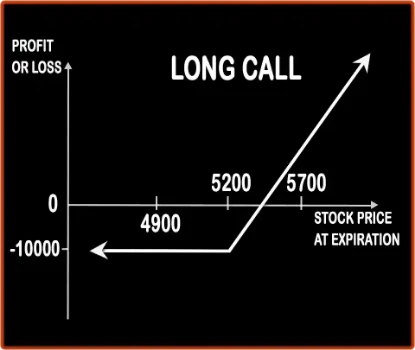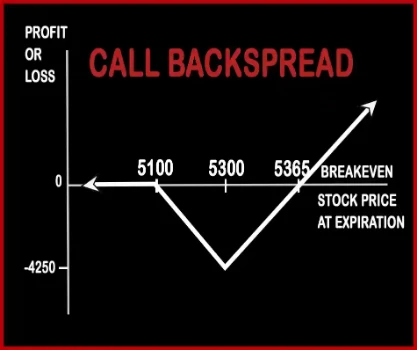Compare Strategies
| LONG CALL | CALL BACKSPREAD | |
|---|---|---|

|

|
|
| About Strategy |
Long Call Option StrategyThis is one of the basic strategies as it involves entering into one position i.e. buying the Call Option only. Any investor who buys the Call Option will be bullish in nature and would be expecting the market to give decent returns in the near future. Risk:
|
Call Backspread Option Trading This strategy is adopted by traders who are bullish in nature. He expects market and volatility to rise in the near future. A trader need not be direction specific here (i.e. an upward or downward trend, but a small bias towards an uptrend should always be present, as the gains will be much higher once the market moves up r .. |
LONG CALL Vs CALL BACKSPREAD - Details
| LONG CALL | CALL BACKSPREAD | |
|---|---|---|
| Market View | Bullish | Bullish |
| Type (CE/PE) | CE (Call Option) | CE (Call Option) |
| Number Of Positions | 1 | 3 |
| Strategy Level | Beginner Level | Advance |
| Reward Profile | Unlimited | Unlimited |
| Risk Profile | Limited | Limited |
| Breakeven Point | Strike Price + Premium | Lower breakeven = strike price of the short call, Upper breakeven = strike price of long calls + point of maximum loss |
LONG CALL Vs CALL BACKSPREAD - When & How to use ?
| LONG CALL | CALL BACKSPREAD | |
|---|---|---|
| Market View | Bullish (Any investor who buys the Call Option will be bullish in nature and would be expecting the market to give decent returns in the near future.) | Bullish |
| When to use? | This strategy work when an investor expect the underlying instrument move in upward direction. | This strategy is used when the investor expects the price of the stock to rise in the future. |
| Action | Buying Call option | Sell 1 ITM Call, BUY 2 OTM Call |
| Breakeven Point | Strike price + Premium | Lower breakeven = strike price of the short call, Upper breakeven = strike price of long calls + point of maximum loss |
LONG CALL Vs CALL BACKSPREAD - Risk & Reward
| LONG CALL | CALL BACKSPREAD | |
|---|---|---|
| Maximum Profit Scenario | Underlying Asset close above from the strike price on expiry. | Unlimited profit potential if the stock goes in upward direction. |
| Maximum Loss Scenario | Premium Paid | Strike Price of long call - Strike Price of short call - Net premium received |
| Risk | Limited | Limited |
| Reward | Unlimited | Unlimited |
LONG CALL Vs CALL BACKSPREAD - Strategy Pros & Cons
| LONG CALL | CALL BACKSPREAD | |
|---|---|---|
| Similar Strategies | Protective Put | - |
| Disadvantage | • In this strategy, there is not protection against the underlying stock falling in value. • 100% loss if the strike price, expiration dates or underlying stocks are badly chosen. | |
| Advantages | • Less investment, more profit. • Unlimited profit with limited risk. • High leverage than simply owning the stock. | • Unlimited profit potential. |